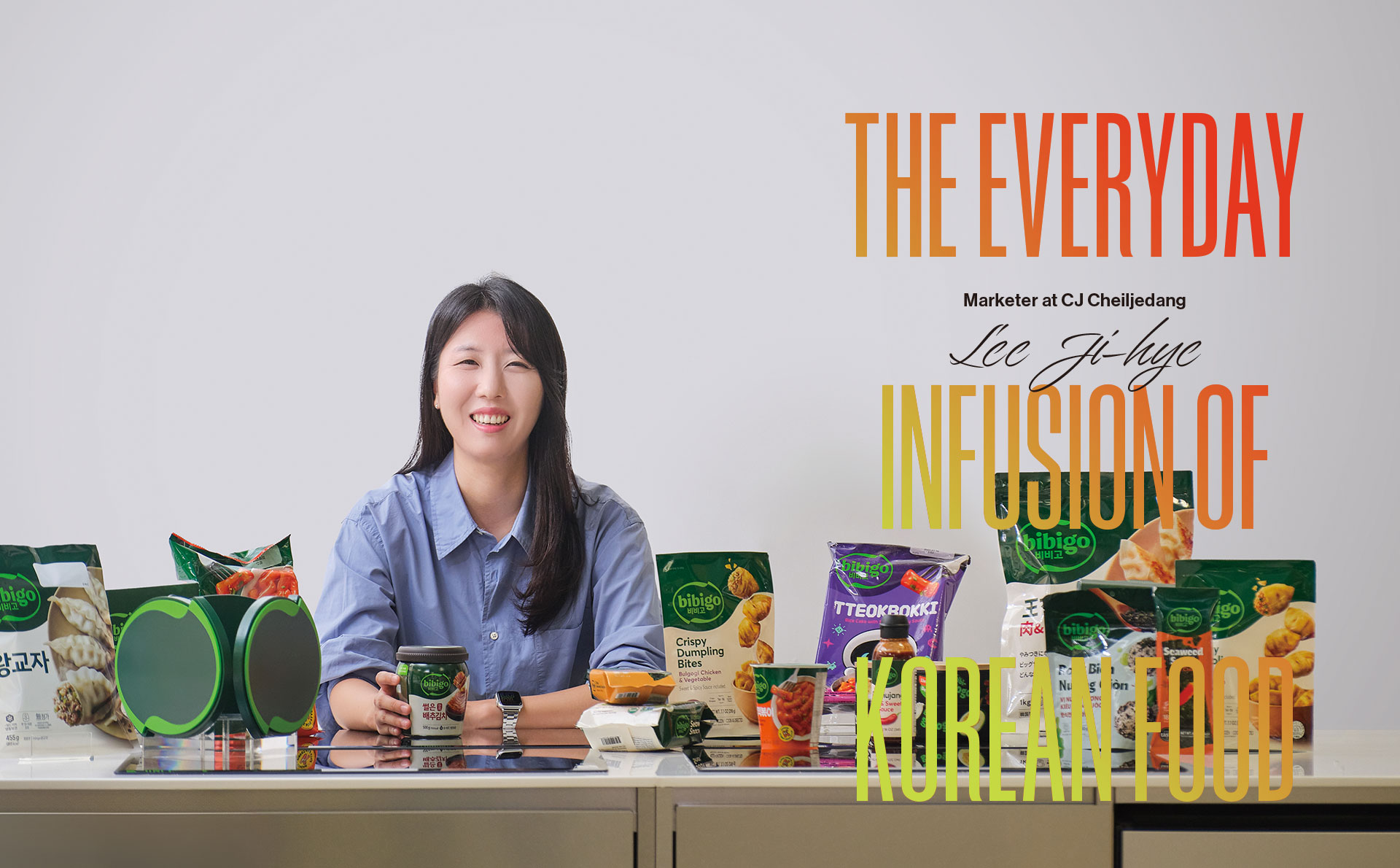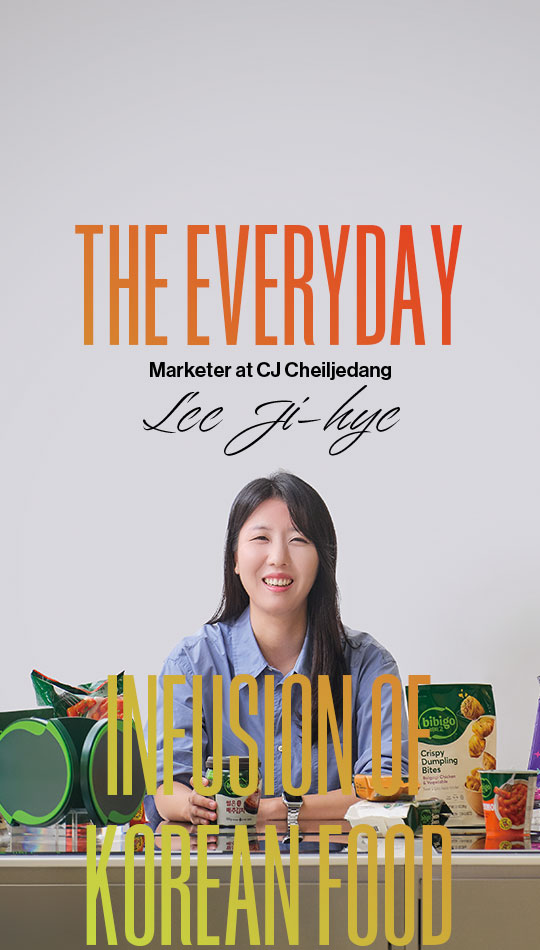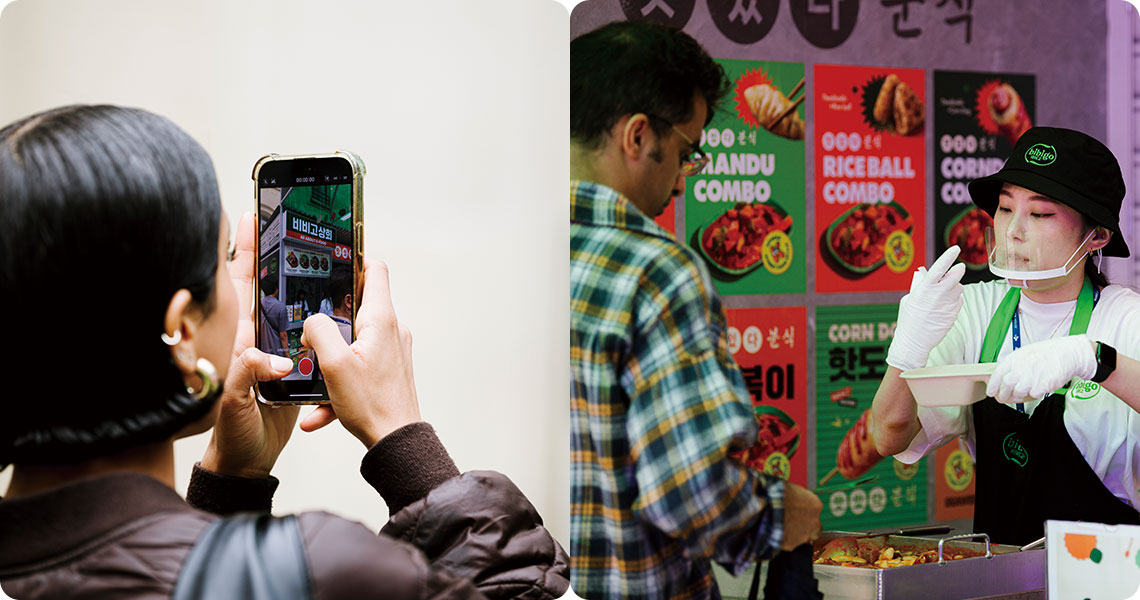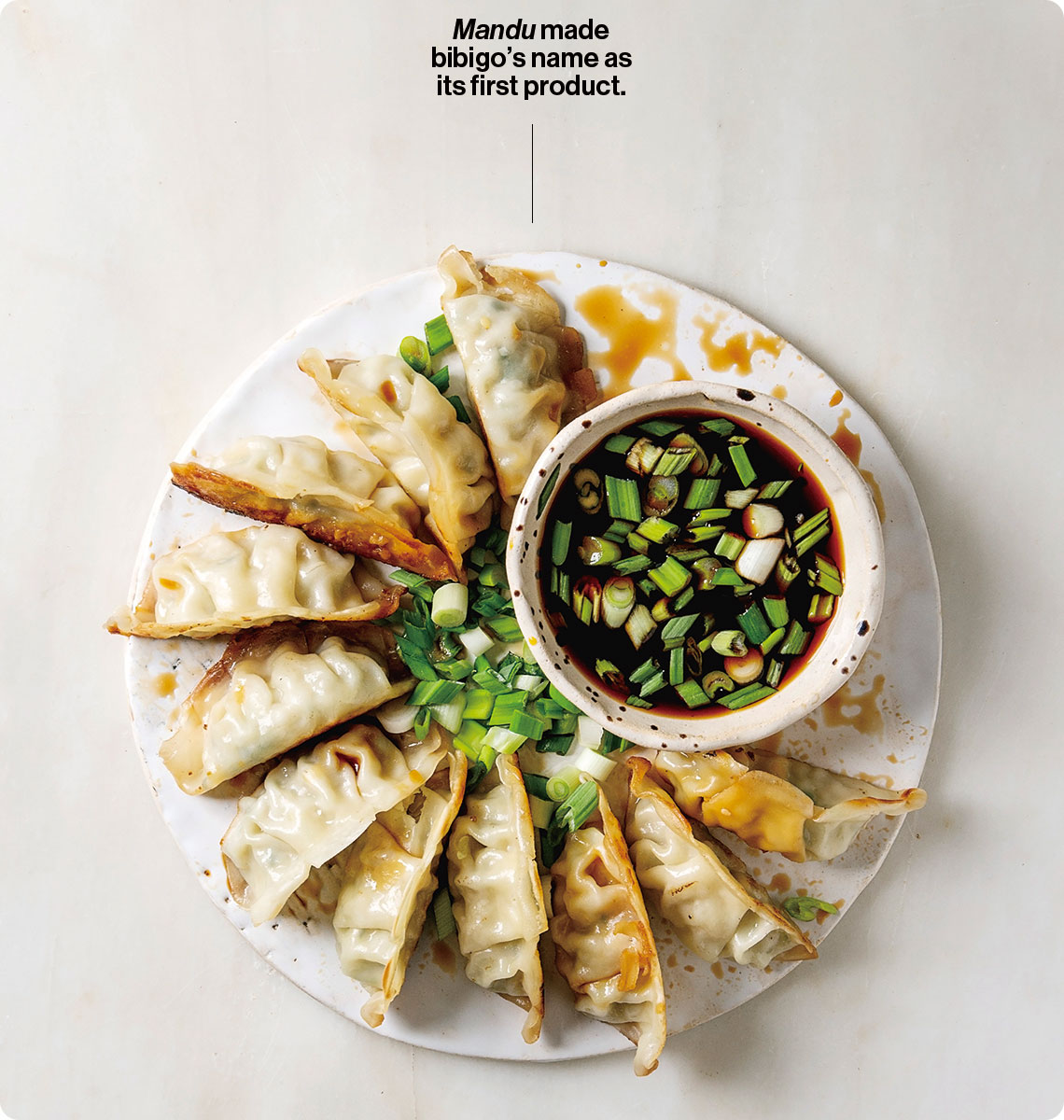In recent years, Korean cuisine has experienced unprecedented global popularity. Previously, most people worldwide were only familiar with Korean food through dishes like kimchi and bulgogi, or Korean-style barbecue, typically found in specialized Korean restaurants. However, the proliferation of frozen and convenience foods has dramatically expanded the reach of Korean cuisine. Bibigo, a brand at the forefront of developing and exporting Korean food, has played a crucial role in making Korean cuisine more globally accessible. The name “bibigo” combines “bibim,” which means to create balance by mixing things, and “go,” which signifies the movement toward the globalization of Korean food. Lee Ji-hye, a global brand communication marketer at CJ Cheiljedang, explains that the company aims to lead the globalization of Korean food by integrating it deeply into people’s daily lives.


Writer. Sung Ji Yeon
The Pioneer
Korean snacks have become increasingly common in supermarkets worldwide, while media attention on Korean cuisine has grown. As a result, more people have tried Korean dishes, shifting the perception of Korean food from exotic to familiar and interesting. This shift is largely due to companies like bibigo, which has been at the forefront of promoting both Korea and its cuisine.
Lee Ji-hye is a 14-year professional in brand communication marketing who has witnessed bibigo’s journey from its inception to its current prominence. She chose to work with a food brand closely connected to people’s daily lives, believing small moments of joy contribute to greater happiness. This philosophy aligns with bibigo’s success, as the brand has become a part of daily life worldwide.
“Bibigo began as a restaurant brand with the goal of globalizing Korean cuisine. However, the restaurants were located only in key cities, and expanding the business required substantial resources. To reach a broader audience, the brand launched as a food line in 2014, starting with frozen processed foods to introduce Korean cuisine to more people.”
The first product bibigo introduced was mandu (Korean style dumplings) which are easily cooked in the microwave.
 Bibigo opened ‘Bibigo Market’ at Korea House in Paris during the 2024 Paris Olympics, promoting Korean culture. © Cj Cheiljedang
Bibigo opened ‘Bibigo Market’ at Korea House in Paris during the 2024 Paris Olympics, promoting Korean culture. © Cj Cheiljedang
Mandu Shakes the World
Bibigo’s journey into the global market was not without its challenges. At that time, Korean cuisine was not widely known internationally, and no Korean food brands had successfully entered the global market. To overcome these hurdles, bibigo focused on understanding the food culture of each target country. Bibigo realized that to globalize Korean food, they had to address its perceived “foreignness” in foreign markets. The brand marketers recognized the importance of tailoring their food strategy to meet the specific needs of consumers in different countries. While maintaining the core concept of “Korean dumplings,” they decided to adapt certain aspects to suit local tastes.
“In Korea, we typically use a mix of pork and beef, with generous amounts of green onions and garlic in our mandu. But we found that wasn’t the case in other countries. Some markets prefer coriander to green onions and garlic, while others prefer chicken. We also encountered special dietary requirements, such as vegan or halal options in certain regions. To address these variations, we conducted indepth analyses of each country’s taste preferences and product expectations. Our strategy became to maintain the essential identity of mandu while localizing the fillings and adjusting the size to suit different markets.”
Bibigo’s approach to entering global markets went beyond simply changing flavors. The company carefully considered how and where consumers would encounter its products in different regions. In Europe, bibigo partnered with a quick-service retail and grocery brand, recognizing that people often try unfamiliar foods in restaurants before purchasing them for home consumption. For the U.S. market, bibigo recognized the dominance of large supermarket chains. They developed exclusive recipes for well-known supermarkets, tailoring their products to the specific needs of American consumers and retail environments.
Through these efforts, bibigo’s mandu became the top-selling brand in the U.S. Then, Korean food began to gain traction worldwide, with bibigo playing a pivotal role in introducing diverse Korean flavors to the global market.
 Mandu made bibigo’s name as its first product. © TongRo Image
Mandu made bibigo’s name as its first product. © TongRo Image
From Extraordinary to Everyday
Bibigo recognizes that Korean cuisine is now widely recognized, so promoting it as a novel concept is unnecessary. Consumers are seeking authentic Korean flavors. Lee Ji-hye explains that bibigo will maintain its differentiated characteristics of taste quality and Koreanness identity, and moving forward, it will pursue a more proactive approach to seamlessly integrate into people’s everyday lives.
“Food is central to our lives. A successful brand should be accessible,” says Lee. Bibigo’s previous slogan, “Share Korean flavor,” focused on table culture, but its new tagline, “Live Delicious,” reflects a broader vision that extends beyond mealtime moments to daily routines.
Bibigo integrates into daily life through innovative strategies like partnering with the Los Angeles Lakers, participating in K-pop concerts, and launching pop-up stores in strategic locations in major cities like Tokyo and London. In August, bibigo participated in the
“Korea House” at the Paris Olympics, captivating visitors with its market concept and diverse menu offerings. These initiatives reflect bibigo’s belief that street food is the next global frontier for Korean cuisine after the success of its mandu. Recognizing that foreigners may not eat Korean food at every meal, the company aims to position it as a light meal or a quick snack, subtly integrating Korean flavors into people’s daily routines.
Lee Ji-hye notes that bibigo has evolved “from the extraordinary to the everyday,” shifting from a brand for special occasions to one that’s easily accessible anytime. This reflects the changing global perception of Korean food, which has become a staple in many people’s daily cooking routines rather than just an occasional restaurant treat.
Bibigo’s future plans are compelling. Lee aims for Korean food to become a natural part of the global culinary landscape. “Just as other countries have established their cuisines worldwide, I want Korea to achieve the same status. We need to strengthen bibigo’s influence so that when people think of Korea, they’ll think of the brand, contributing to the globalization of Korean food.”
